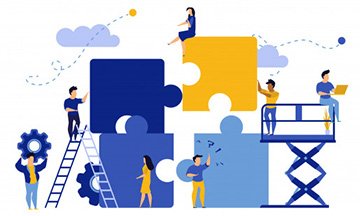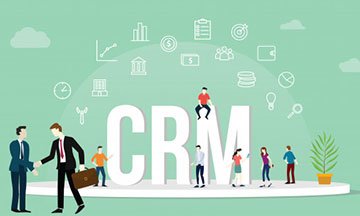Coaching Customer Service Skills Training Program
| Date | Venue | Duration | Fees | |
|---|---|---|---|---|
| 29 Apr - 03 May, 2024 | Dubai | 5 Days | $4250 | Register |
| 06 May - 10 May, 2024 | Dubai | 5 Days | $4250 | Register |
| 24 Jun - 28 Jun, 2024 | Dubai | 5 Days | $4250 | Register |
| 22 Jul - 26 Jul, 2024 | Dubai | 5 Days | $4250 | Register |
| 05 Aug - 09 Aug, 2024 | Dubai | 5 Days | $4250 | Register |
| 23 Sep - 27 Sep, 2024 | Dubai | 5 Days | $4250 | Register |
| 07 Oct - 09 Oct, 2024 | Abu Dhabi | 3 Days | $3500 | Register |
| 14 Oct - 18 Oct, 2024 | Dubai | 5 Days | $4250 | Register |
| 11 Nov - 15 Nov, 2024 | Dubai | 5 Days | $4250 | Register |
| 09 Dec - 13 Dec, 2024 | Dubai | 5 Days | $4250 | Register |
Course Overview
Customer service excellence is being recognised as the holy grail of sales. Competent customer service helps in cultivating a pleasant customer experience. Positive recurring customer experience, in turn, generates customer satisfaction and loyalty towards the brand. It is well known that customer service professionals are the first to interact with prospective customers. Their interaction, attitude, and approach towards customers can make or break a business and its reputation. Thus, it becomes very critical for an organisation to have a well-trained customer service staff. It does not suffice to merely have a workforce that is dedicated and hardworking. The customer service team must know how to turn this dedication and knowledge to the organisation’s advantage. This is where the need for coaching customer service skills arises.
How do you coach customer service skills?
Who is a customer service coach? – A well-experienced and established person of the industry, most certainly. He or she understands various subtleties and nuances of customer service. They are needed to educate beginners in the field of customer service. Such a coach would equip them with the tools of the fundamentals of customer service. The need for coaching also arises for representatives who have been working in customer service for a while but have not been up to date with the latest changes and developments. In such cases, coaching helps them in improving their skills and getting back on track. The need for a dynamic and experienced expert for coaching is actively felt by organisations looking to sharpen their workforce. This coach is often found within the organisation itself in the form of team leaders, supervisors, or managers. However, to train others a coach often needs to be assimilated to the needs of the trainees.
What are the techniques of coaching?
How can the coach build a trusting relationship with the trainees? How to ensure proper goal setting with adequate quality standards for customer dealing? How to establish a solution-centric environment among the team? How to guarantee continuous learning? How to train the representatives for challenges regarding customer service? How to assess the skills of representatives to identify problem areas and areas that need improvement? These are only some of the obstacles faced by coaches when training professionals for customer service. An organisation that seeks to exceed customer expectations needs to prioritize regular coaching of customer service staff. Regular coaching keeps customer service representatives abreast of the latest knowledge and prevents dulling of customer service skills. The need for an efficient coach is often pressing for the organisation and cannot be neglected.
Zoe talent solutions understand that amidst the deluge of constant challenges faced by organisations, customer service skills coaching can often take a backseat. Even if the organisation is keen to provide training to its customer service staff, it is faced with a lack of skilled leadership. To combat these issues, Zoe has introduced this compact and effective ‘Coaching customer service skills training program’. The program has been created for coaches, team leaders, managers, supervisors, or professionals who have been charged with the task of coaching the customer skills within the staff. The course provides an analysis as to how different trainees have different needs and how their specific behaviour can be changed. The course will reaffirm the basics of customer service, inculcate the culture of idea sharing, team development, goal setting of the representatives, develop an action plan for future growth, and so on. Correct coaching of leaders and a well-organised coaching program can prove to be the foundation of robust customer service if done rightly.
Course Objectives
Coaching customer service skills training program aims to achieve the following objectives:
● Inculcate such a conducive environment within the organisation that ensures continuous learning
● Build an improvement of the customer service skills of each delegate
● Evolve team leaders and managers to coaches of customer service
● Build a trusting relationship between the coach and their team
● Create modules in customer service aimed towards a common achievement of organisational goals
● Develop an efficient customer support system
● Curate ethics that prioritize the customer
● Build teams that aid in cultivating customer loyalty
Training Methodology
● Interactive sessions and lectures
● Presentations
● Management games
● Role-playing/modelling
● Case studies
● Group discussions
● Problem-solving sessions
Organisational Benefits
Successful completion of the training program shall benefit the organisation in the following ways:
● Regular coaching will ensure that customer service staff is providing the most efficient and relevant service to its customers
● Have the customer service team keep up with the latest trends of the market
● Develop a dynamic sales force that understands different ways to deal with difficult customer situations
● Polish skills of the existing team leaders and managers
● Develop efficient goal-setting criteria that would meet the benchmark of quality
● Develop a functional feedback and monitoring system through which leaders and managers can constantly review upcoming challenges and issues
● This training will result in better employee engagement
Personal Benefits
Successful completion of the training program shall benefit participants at a personal level in the following ways:
● Coaches shall receive a fact-based and honest feedback system from representatives who will help them improve their coaching skills
● Coaches shall be able to appreciate that every representative has a different understanding ground
● Coaches will learn how to tackle different personalities in an effective manner
● Enhance better decision-making skills and develop quick thinking to tackle challenging situations
● Participants will gain deeper insight into the internal as well as the external operational environment
● Participants will better their understanding of the firm which will help them advance in their careers
Who Should Attend?
● Team leaders
● Managers
● Sales executives
● Supervisors
● Marketing heads
● Entrepreneurs
● Start-up founders
Course Outline
Module 1: Introduction to coaching skills
● Role of coaches
● Importance of coaching in customer service
● Appreciating customer service dynamism
● Managing and coaching – Find your balance!
● Developing leadership approach
● GROW coaching model: goal, reality, options, will
● Coaching methods: job shadowing exchange, job rotation
Module 2: Discussing essentials of coaching of customer service skills
● Set customer service standards for beginners
● Discuss customer service goals
● Prepare your participants for outstanding service
Module 3: Developing conducive coaching environment
● Coaching process
● Connecting with the trainees
● Identifying problem areas
● Timely review and feedback
Module 4: Goal setting and assessing performance
● Developing action of plan
● Ensuring clarity of goals
● Setting quality standards
● Changing people’s behaviour
Module 5: Dealing with dynamic and difficult customer situations
● Keeping up-to-date with product information
● Handling complaints
● Dealing with angry customers
● Not taking customer anger personally
Module 6: Barriers to developing a trusting relationship
● Creating accountability
● Keeping a balance between the expectation of coach and coachee
● Allowing for autonomy
Module 7: Coaching with data
● Working with feedback
● Preparing tip sheets
● Assessment and project
Module 8: Working on communication skills
● Developing patience and empathy
● Importance of non-verbal communication
Module 9: Challenges to coaching
● Maintaining confidentiality
● Recognizing conflict of interests
● Managing resistance to change
● Fear of criticism in trainees
Module 10: Essential coaching analytical skills
● Developing analytical thinking
● Analysing learner’s shortcomings
● Using analytical tools for decision making
Module 11: Identifying challenges to delivering satisfying service
● Empower and motivate participants
● Customer service as per phase of the customer journey
● Use of right tools to deliver service
● Common challenges in customer service & how to overcome them
Module 12: Developing customer-centric culture in a team
● How to place your customer first!
● Creating your customer mission statement
● Guidance on attracting customers











